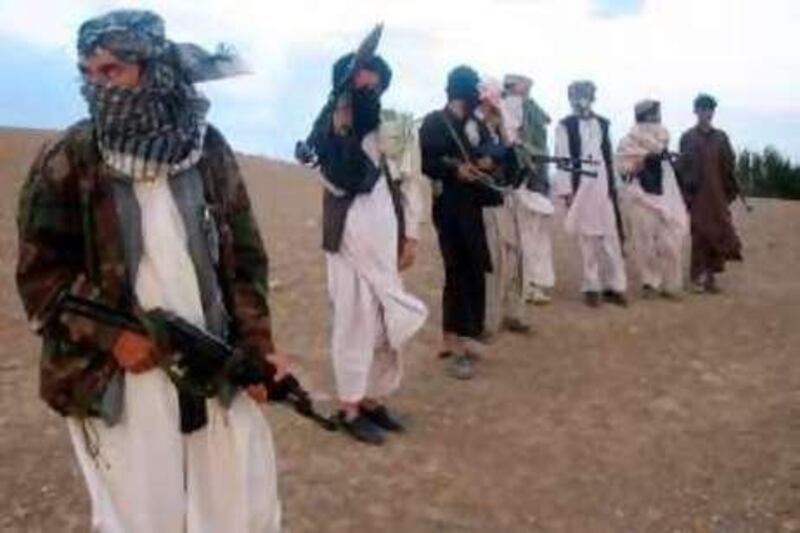KABUL // A regional change in strategy is badly needed if the Taliban and al Qa'eda are to be defeated, the top official responsible for counter-terrorism at Afghanistan's ministry of the interior has warned. With the insurgency here edging ever closer to Kabul and growing concerns about the security situation in Pakistan, Abdul Manan Farahi said important time had already been lost in the battle against extremism.
"It's very difficult and I am not very optimistic if we continue like now," he said. This has been the bloodiest year for Afghanistan since the Taliban government was overthrown. According to the UN, 1,445 civilians were killed from January to August - a 39 per cent rise on the corresponding period in 2007. Meanwhile, hundreds of thousands of people have been displaced by fighting in the frontier areas of Pakistan and a recent suicide bombing in Islamabad left at least 53 dead. Speaking at his office in Kabul, Mr Farahi said stronger leadership was needed to prevent security from deteriorating further.
"The situation is bad not only in Afghanistan, the situation is bad in the region," he said. The United States now seems to agree and after years of quiet diplomacy, Washington has launched several military operations across the border in the past month. Mr Farahi described the raids as "very good", but warned that they were not enough. He urged the international community to ratchet up political pressure on Pakistan, where he claimed more than 25 or 30 large insurgent training camps were stationed.
"The huge problem which we have now - like in the past - is that the Taliban are still crossing the border from Waziristan" into Afghanistan, he said. With a new government in place in Islamabad, Hamid Karzai, the Afghan president, has declared that he feels hopeful for the "first time" that the militants can be beaten. Yet Mr Farahi repeated long-standing accusations that some members of the Pakistani establishment - particularly its ISI intelligence agency - were supporting the insurgents.
"The only solution for the terrorism problem is good co-operation between the Afghanistan and Pakistan governments. "Unfortunately, extremism has grown very bad inside the Pakistan military, specifically in the ISI," he said, referring to Pakistan's powerful intelligence agency, the Inter-Services Intelligence. However, Mr Farahi was just as quick to point out shortcomings closer to home, highlighting the drugs trade, the strength of warlords, organised crime, weak governance and a fragile economy as issues Afghanistan must address.
He also called the Nato divisions that have led to some countries putting restrictions on their troop deployments a "problem" that should be looked at. "Afghanistan needs strong leadership and teamwork. It also needs very strong international co-operation and support," he said. Insurgent tactics have grown in sophistication throughout the Afghan summer. Whereas suicide attacks were once the main weapon of choice, roadside bombings are now being used to deadly effect. The interior ministry recently announced that 720 police have been killed over the past six months, aid workers have been targeted like never before and the death toll for US troops this year is the highest yet.
Mr Farahi said a new generation of extremist leaders had emerged and they were recruiting boys as young as five or six to the cause. The insurgents had developed a powerful publicity machine, he said, which means "if something happens today in Kabul, tomorrow it will be part of the Taliban's big propaganda system across Afghanistan, Pakistan and other countries". csands@thenational.ae





